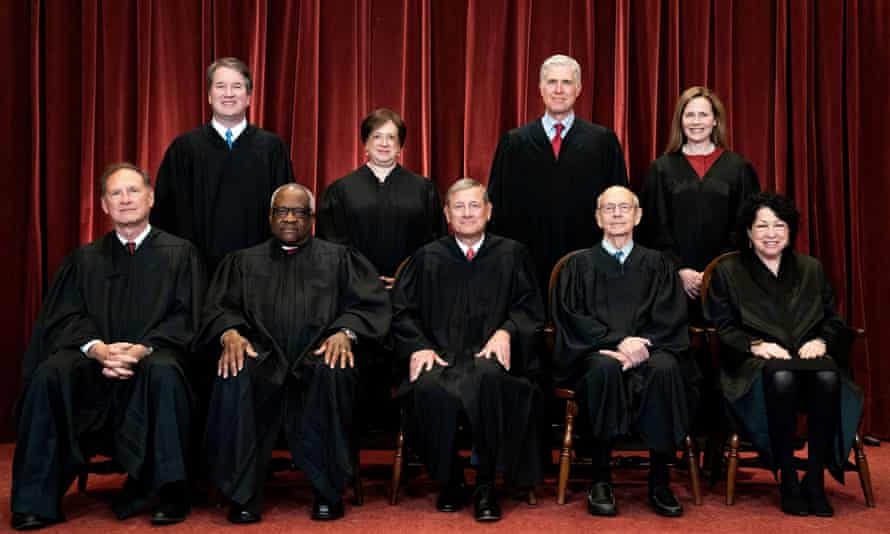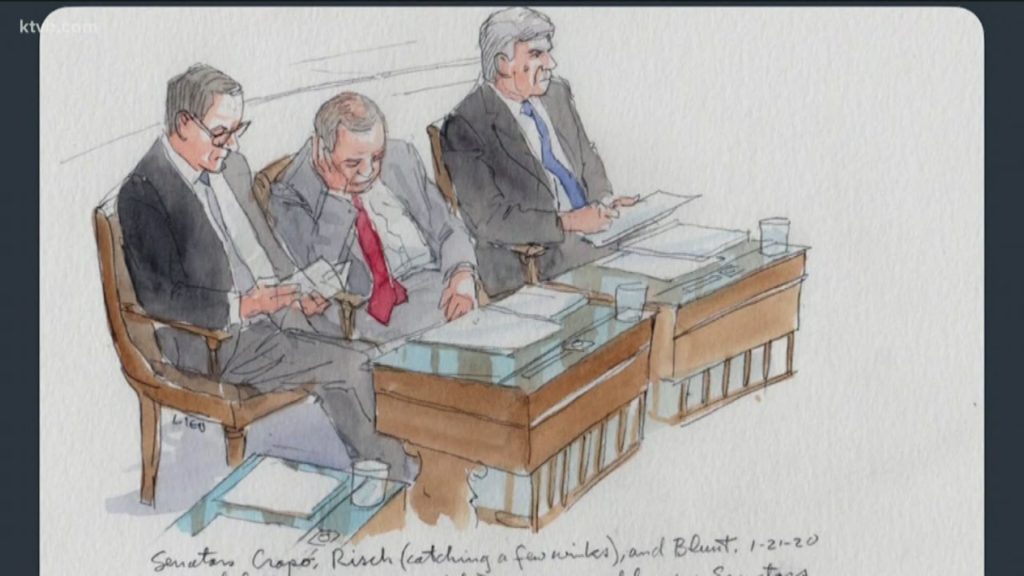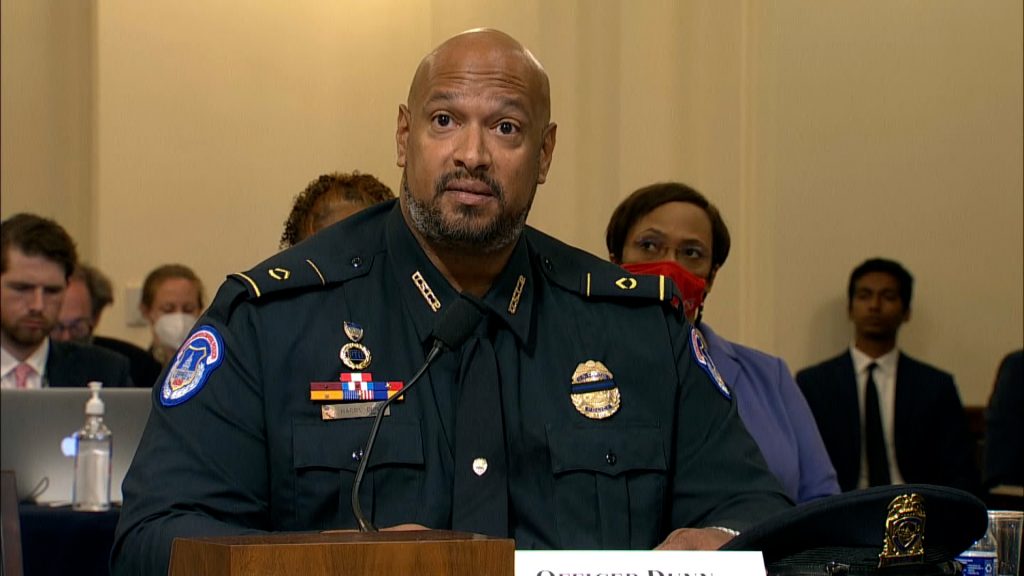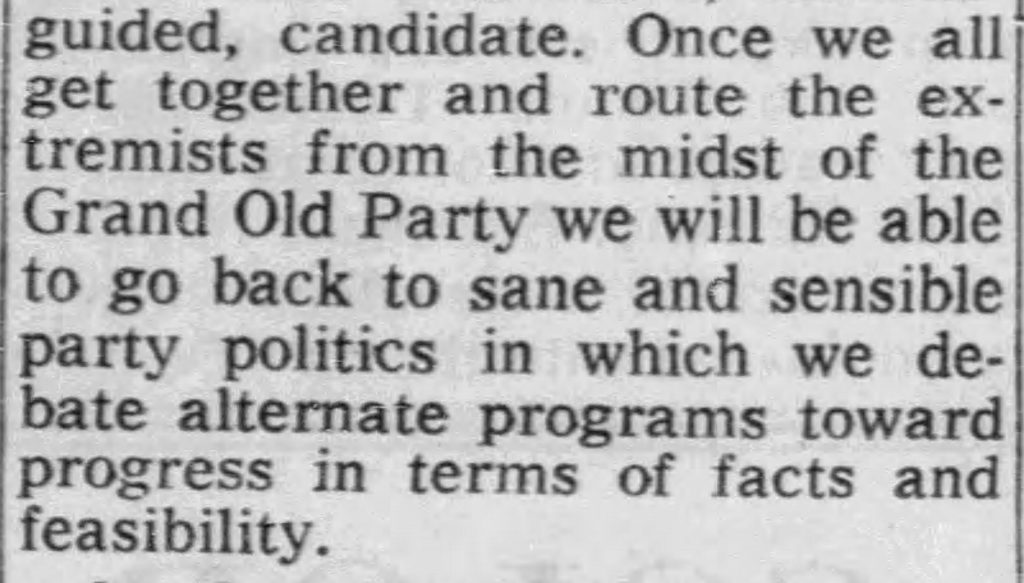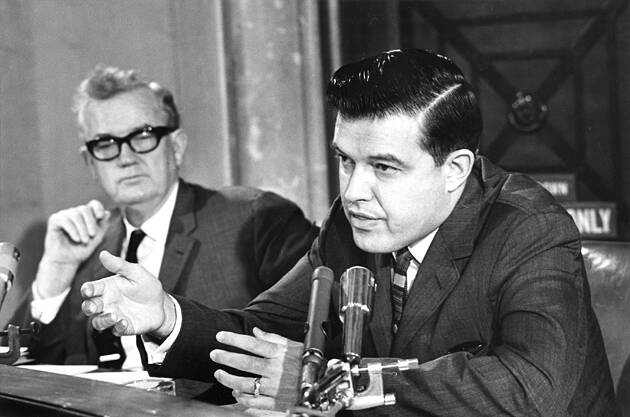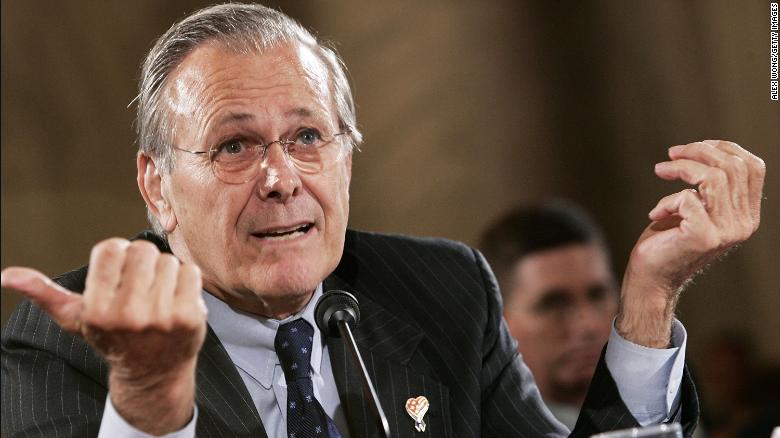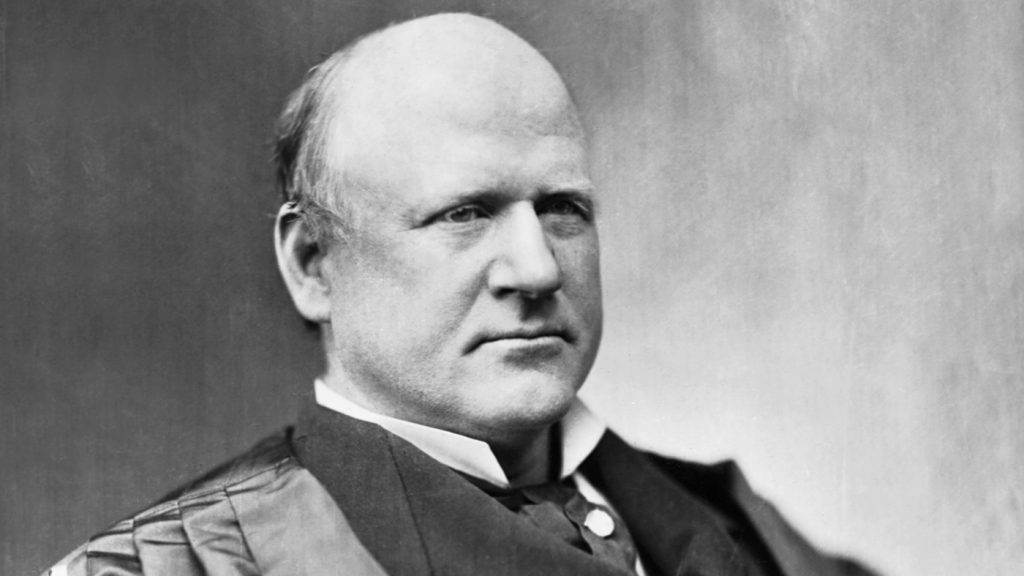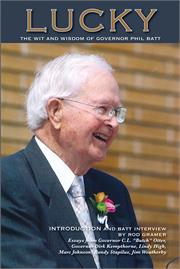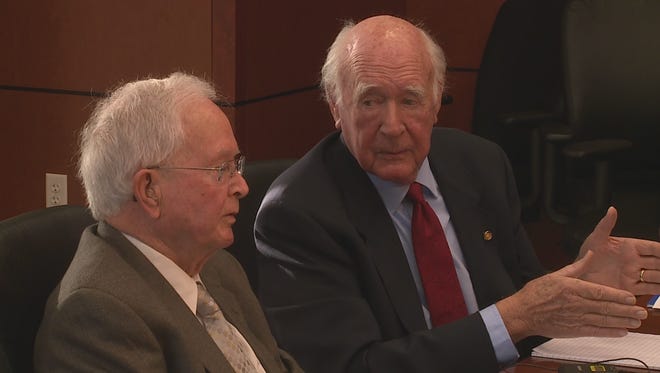Across the vast expanse of the American West the Republican Party has a militia problem. Most Republican elected officials are either in denial that a real problem exists or they are quietly hoping it somehow goes away.
It isn’t going away, and its existence should worry everyone who cares about the future of our democracy.
Journalist Heath Druzin has been reporting on anti-government militia groups in the West for years. He knows and frequently speaks with the leaders and members of groups like The Proud Boys, the Oath Keepers and the Three Percenters. Druzin keeps tabs on Ammon Bundy, the rancher turned politician who led the armed takeover of an eastern Oregon wildlife refuge in 2016 and who was until this week a Republican candidate for governor of Idaho. Bundy now says he’ll run as an independent.

Druzin’s current NPR podcast – “Extremely American” – focuses on what he calls “the ascendent patriot movement,” a collection of “militia members and far-right activists who are simultaneously preparing to fight the government and become part of it.”
Druzin’s reporting, and ample evidence on the ground in Idaho, Montana, Washington and elsewhere, demonstrate the increasing connections between the so called “militia movement” and the Republican Party.
“More and more I started seeing these guys in the Statehouse not out in the mountains shooting guns,” Druzin told me recently. “They were walking into a representative or senator’s office – that is different. They are extremely distrustful of the government, but now they are trying to be part of it.”
The evidence is impossible to ignore.
While Bundy runs for governor in Idaho, Eric Parker, founder of a group he calls “Real 3%ers Idaho,” is a Republican candidate for a state senate seat. Parker’s polished campaign website features a photo of the candidate with Idaho lieutenant governor Janice McGeachin, who has close ties to various militia groups and leaders and is running against incumbent governor Brad Little. Parker has endorsed McGeachin.
Parker’s website has the obligatory bio and statements about his positions. He will base his legislative votes, Parker says, on the Constitution, and he pledges to “work to address all constitutional breakdowns and to re-establish checks-and-balances to our State government.” Parker claims his group helped expand gun rights in Idaho and he wants more state control over public lands and more school choice.
Parker has repeatedly insisted his group – he says it has 2,500 members – is not a militia, and his political rhetoric, laced with references to the Constitution and demanding absolutist rights for gun owners, represents a typical issue mix for a very conservative western Republican. But missing, not surprisingly, from Parker’s bio is any mention of his guilty plea for obstructing a court order related to his involvement with another Bundy family standoff in Nevada in 2014. A widely circulated photo of Parker during the encounter shows him aiming his rifle at federal agents from behind a barricade.
Parker ran for the legislature in 2020. He lost but still gathered nearly 44% of the votes in his south-central Idaho district that ironically includes the liberal enclave of Sun Valley, the tony ski and summer resort. The legislative district’s boundaries were recently redrawn and a credible, establishment Republican is also running for what will be an open seat, so it remains to be seen if Parker has a real path to the state senate.
Representative Chad Christensen, a Republican representing a district in extreme southeastern Idaho, found his political path in 2018. Christensen proudly lists his membership in the John Birch Society and the Oath Keepers on his legislative website and says he’s serving in the legislature “to protect the God-given rights and freedom of people. It doesn’t matter who the foe might be, foreign enemies, groups against liberty, or our very own government.”

The Oath Keepers have been a major focus of the Justice Department’s investigation of the January 6 attack on the U.S. Capitol. The group’s leader, Stewart Rhodes a former paratrooper with a Yale law degree, was arrested in January and charged with seditious conspiracy for what has been described as a wide-ranging plot to storm the Capitol to stop the congressional certification of Joe Biden’s election.
“We aren’t getting through this without a civil war,” Rhodes wrote on the encrypted chat app Signal that was included as evidence for his indictment. “Too late for that. Prepare your mind, body, spirit.” Small wonder the FBI describes the Oath Keepers as a “paramilitary organization,” a definition the Southern Poverty Law Center expands to include “promoting their own form of vigilante justice.”
Javed Ali, a former senior director of the National Security Council and a counterterrorism official at the FBI, told CBS’s 60 Minutes in June 2021, that among the loosely connected militia groups the Oath Keepers is the most troubling.
“I think what makes the Oath Keepers unique and challenging,” Ali said, “beyond the fact that they are a formal group with chapters all over the country, is that a large percentage have tactical training and operational experience in either the military or law enforcement. That at least gives them a capability that a lot of other people in this far right space don’t have.”
The group also has friends in high Republican places ranging from Donald Trump adviser Roger Stone, who is frequently accompanied by armed Oath Keeper members, to Montana far right Congressman Matt Rosendale. Rosendale spoke at an Oath Keepers’ event in 2014 before he was elected to Congress, but now dismisses any connection with the group. “Didn’t see it, doesn’t impact me,” Rosendale said when asked about the charges against Rhodes.

The Republican Party Chairman in Wyoming, William “Frank” Eathorne, is both an outspoken opponent of his state’s GOP congresswoman Liz Cheney and, according to leaked Oath Keepers documents, a member of the group. Eathorne hasn’t addressed publicly his affiliation, but he been busy undercutting the congressional investigation, including leading the charge to formally condemn Cheney and Illinois Republican Adam Kinzinger due to their role investigating the January 6 attack.
The leaked Oath Keepers documents identified at least 28 Republican elected officials as members. Two of them – state representatives Mark Finchem of Arizona and David Eastman of Alaska – were part of the January 6 protest, although neither has been charged as a result.
Once upon a time identifying as a Bircher or being a member of gun-toting groups advocating violent political action would have gotten you ostracized by the Republican Party. Now leaders of the party – governors, senators, state legislators – have chosen silence over repudiation even as evidence of political violence grows daily.
In Idaho, Governor Little has even endorsed legislation that would repeal the state’s 95-year-old ban on private militias.
Republicans who should know better have made a dangerous calculation. By adopting a strategy of appeasing the radicals they have made it even more likely the militant fringe will ultimately prevail in taking over the party.
—–0—–
Additional Reading:
Some other items you may find of interest…
How Thatcher and Murdoch made their secret deal
Before Rupert Murdoch, the Fox News impresario – some would say a principle in the downfall of modern media – became a huge force in American politics, he was pioneering his ruthless style in the U.K. This story was originally published in 2015, but it’s worth a fresh read.

“Successive governments of both parties, scared when they could have been stalwart, have done no better in dealing with Murdoch. Parliament expresses its determination to protect free speech and plurality but it appears that ministers try hard to live up to Murdoch’s classification of politicians as invertebrates.”
The author is Harold Evans, a legendary name in British journalism. Here is the link.
How Democrats Can Win in White Working-Class Districts
Some Democrats, it seems, aren’t interested in the question of how to appeal again to white, working class voters. If the party doesn’t figure it out – and pretty quickly – it’s in for a world of hurt. From Washington Monthly:
“As Sasha Issenberg pointed out in his book The Victory Lab, George W. Bush’s reelection campaign in 2004 conducted ‘search and rescue’ operations to find Republican voters in strong Democratic communities like Duluth, Minnesota. Democrats should do the same, and start by investing in training local volunteers in canvassing and phone techniques. Research has shown that local volunteers are more effective than people brought in from the outside, but they need to be properly trained. And as this magazine has documented, even in the reddest districts there are cadres of loyal Democrats eager to help, if only someone would ask.”
Good piece on the practical nuts and bolt of politics.
American Literature is a History of the Nation’s Libraries
I believe more than ever that our libraries are a bedrock institution of democracy.
Here is what the great Kurt Vonnegut wrote:
“I want to congratulate librarians, not famous for their physical strength or their powerful political connections or their great wealth, who, all over this country, have staunchly resisted anti-democratic bullies who have tried to remove certain books from their shelves, and have refused to reveal to thought police the names of persons who have checked out those titles. So the America I loved still exists, if not in the White House or the Supreme Court or the Senate or the House of Representatives or the media. The America I love still exists at the front desks of our public libraries.”
A superb little essay on the public library.
Thanks for following along here. Be well. Thanks for reading.












